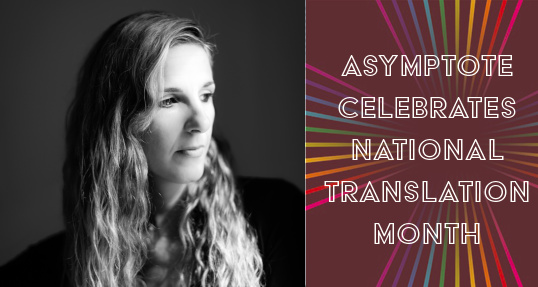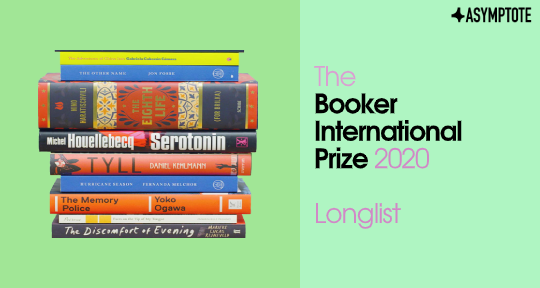Quattro Books was founded in 2006 by Allan Briesmaster, John Calabro, Beatriz Hausner, and Luciano Iacobelli, with the aim of publishing established and emerging authors who represent the linguistic and cultural diversity of literature in Toronto and across Canada. As such, from the start, Quattro Books has sought to bring out works originally written in English alongside those translated from the multilingual voices of Canadians who have arrived in the country as immigrants or refugees. The press’s recent acquisition by Bilal Hashmi, president of the Association des traducteurs et traductrices littéraires du Canada / Literary Translators’ Association of Canada (ATTLC-LTAC), and a translator himself—from French, Urdu, Persian, and Hindi—has led to a shift in focus that favours the latter. This is evidenced by Quattro Books’s first catalogue since Hashmi took over as Executive Director and Publisher. Due out in the fall of 2020, it will feature English translations of Canadian works spanning six languages. Asymptote’s co-Editor-at-Large for Argentina, Sarah Moses, met with Hashmi in Toronto to discuss Canadian literature as international literature, works in translation as partnerships, and how he’s shaping Quattro Books into a translation-focused press.
Sarah Moses (SM): I’d like to begin by asking you about your involvement with the ATTLC-LTAC. How has it led to Quattro becoming what you’ve described as a translation-focused press?
Bilal Hashmi (BH): Beatriz Hausner is central both to the ATTLC-LTAC and Quattro. She’s one of the founding members of Quattro and was the president of the ATTLC-LTAC in 2017, when I joined. I had the privilege of being mentored by her in translation and advocacy work, and the one thing we all sort of agreed on is that there should be more international works in translation available in Canada. So the movement from the ATTLC-LTAC to Quattro was, in a way, organic—the work at the former led to the idea: now we have an opportunity, let’s see what happens. That’s the way I thought of it. I started off as membership secretary in 2017 and I’ve been the president since June. We continue to work through some of the same issues that we’ve dealt with in the past: translator visibility, proper recognition, and so on—these remain our goals. But I think what Quattro will possibly do in the future is shift the discussion so it’s no longer necessarily the “two solitudes” of English and French, but the multilingual nature of Canadian writing that comes through.
SM: Is this primarily how you see Quattro Books fitting in among publishers of translation in Canada and internationally—as a press that moves beyond translations between English and French?
BH: In our first catalogue we have translations from French, Serbian, German, Russian, Portuguese, Spanish, and then two titles that were written in English. We’re not going to do exclusively translation, but that’s the focus, which I think is unique in Canadian publishing. Whether or not that continues is something we’ll have to determine. We’re really hoping to find out if publishing majority translations is a viable activity.
Working with translation has involved a very international cast of characters, which is really what I find most exciting about Canadian literature as international literature. I think those who are very skeptical about translation’s profitability or potential for success kind of forget that you do have access potentially to other markets. Typically, Canadian books are marketed internally for Canadian consumption and the expectation is that Canadians will buy fellow Canadians. It doesn’t always work that way. My hope is that these books will be seen as Canadian literature, plus whatever other literature they’re referencing—let’s say the Portuguese-Angolan return novel, of which there’s now a sizable and critically acclaimed subgenre in Portuguese fiction. So the hope is that they’ll cross over into other markets, beginning in the US.
The catalogue started as kind of an exercise in fantasy, which I think I shared with you a couple of summers ago. It was an exercise in what works within the funding paradigm. Readers of Asymptote should know that in Canada the main translation activity is English-to-French, French-to-English, but the official requirement for funding from the Canada Council for the Arts is that the author be Canadian. There’s no limitation on the source language so long as the work is translated into French, English, or an indigenous language. I did a little bit of a research and I found a list of about twenty or so Canadian writers who brought in different literary histories with them. All of these works are technically eligible for Canada Council for the Arts grants, and we’re very lucky and grateful to the Canada Council for funding all six, which may be a first in Canadian publishing for one season, and probably unique in this part of the world. So that’s how it started. I think we have another half dozen languages already in the pipeline if not already under contract, also all Canadian authors. My hope is really to explore this lesser-known part of Canadian literary history, which tends not to see that much exposure in the current framework.
In the first couple of years, the focus will be on Canadian content, but we’re also starting to acquire from outside, including translations. That’s a challenge since I will insist that everyone gets paid at the Canadian rate, which is the determining factor. Because if it’s a five-hundred page novel and there’s no funding for it, then we’re probably not going to be able to pay the eighteen-cents-per-word rate—that’s the rate for prose. I believe the per-word rate remains at twenty cents for theatre and twenty-five cents for poetry. READ MORE…




